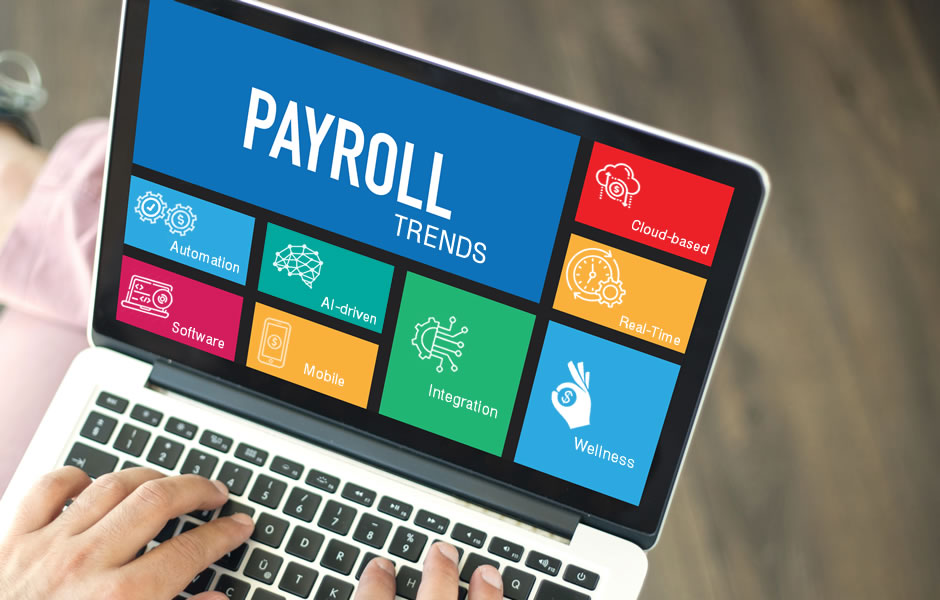Hello!
 It’s fair to say that the past couple of years have been very challenging for most companies. With a global pandemic shaking up the way we normally do things, companies have to rapidly adapt to new working methods.
It’s fair to say that the past couple of years have been very challenging for most companies. With a global pandemic shaking up the way we normally do things, companies have to rapidly adapt to new working methods.
There is no doubt that the Covid-19 crisis has brought with it several payroll challenges – from staff shortages to uncertainty for employees, complex government regulations, and remote working challenges.
These challenges will certainly have a huge impact on payroll moving forward.
While it’s not yet clear when the Covid-19 pandemic will be over, we can look toward a more positive year with much improved processes and excellent payroll strategies. In this article, let’s take a look at some of the most important payroll trends (www.remote.com/blog/global-payroll-trends) to look out for.
1. Use of Cloud Technology
 Cloud-based technology has become an increasing trend in payroll over the past few years. According to a survey, about 38% of payroll software is being hosted with cloud technology. Cloud technology offers access to data and systems from anywhere. You only need a device that’s connected to the Internet.
Cloud-based technology has become an increasing trend in payroll over the past few years. According to a survey, about 38% of payroll software is being hosted with cloud technology. Cloud technology offers access to data and systems from anywhere. You only need a device that’s connected to the Internet.
Since much of the UK workforce is still working from home due to the Covid-19 pandemic, the use of cloud technology for payroll processing will continue in the next few years. The technology allows HR teams to easily access payroll information anytime and from anywhere. With the help of the cloud, they no longer need to go to the office for payroll tasks. Overall, cloud technology allows for a more flexible, efficient, and agile way of processing payroll.
The cloud technology also helps the HR team access real-time data and information to report to the company. Access to timely and accurate information is essential for payroll professionals to make strategic decisions.
 In addition, cloud technology is not only applicable to payroll software. Other payroll services also use cloud-based technology. One example is Epay, a digital communications application that functions as an online payslip portal. It’s securely accessible using any Internet-connected device. Therefore, no matter where you or your employees are located, you can easily and quickly communicate with them regarding their pay information and relay other important updates about the company.
In addition, cloud technology is not only applicable to payroll software. Other payroll services also use cloud-based technology. One example is Epay, a digital communications application that functions as an online payslip portal. It’s securely accessible using any Internet-connected device. Therefore, no matter where you or your employees are located, you can easily and quickly communicate with them regarding their pay information and relay other important updates about the company.
Indeed, a cloud-based payroll system offers significant support for companies whose workforce is still operating remotely, especially the payroll department. The technology allows employees to work from anywhere and access the same information they can access from the office while also ensuring that payroll transactions remain safe.
2. Automation
 Another important payroll trend to watch out for is the use of automation to replace manual and repetitive tasks. Automation is definitely not a new concept. However, it’s only now that it has become one of the most popular buzzwords in the HR and payroll industry.
Another important payroll trend to watch out for is the use of automation to replace manual and repetitive tasks. Automation is definitely not a new concept. However, it’s only now that it has become one of the most popular buzzwords in the HR and payroll industry.
One of the best things about using automated tools for payroll is that you can program it to use structured data and rules when carrying out important routinary tasks. It’s more suitable for payroll tasks that are repetitive, prone to error, time-critical, and data-driven. The tools work so well for payroll tasks, including payroll processing and distribution of documentation, because these tasks are data-driven and highly repetitive.
Many companies now recognize the importance of automation technology since it allows them to complete tasks quickly and more accurately. It also makes it easier for them to integrate data and link with other business systems. Due to automation technology, certain tasks like payslip distribution, which usually takes several hours for HR teams to do, can now be done in only a few minutes or even seconds. With automation, you will have more time to focus on more important projects. It also allows you to easily analyze employee data to provide insight into other business areas, such as HR and finance, without wasting too much time doing repetitive administrative payroll tasks.
 A growing number of businesses now offer automated, web-based payroll solutions, making it easier for HR teams to work together with the Finance Department to generate accurate paychecks and tax payments. Some of these tools also come with full-service options, allowing small businesses to outsource payroll and tax processing.
A growing number of businesses now offer automated, web-based payroll solutions, making it easier for HR teams to work together with the Finance Department to generate accurate paychecks and tax payments. Some of these tools also come with full-service options, allowing small businesses to outsource payroll and tax processing.
Remember, time is money. The biggest advantage of integrating a payroll automation system is saving a significant amount of time. Manual payroll processing is time-consuming and offers a much higher chance of errors in payroll computation. Remember, if you pay your employees incorrectly, you could end up paying enormous penalties.
3. Security Compliance
 Every company keeps a significant amount of employee data that are personal and sensitive. The majority of this information is kept within the HR and payroll systems.
Every company keeps a significant amount of employee data that are personal and sensitive. The majority of this information is kept within the HR and payroll systems.
Your payroll team deals with employee data every single day and is responsible for minimizing any risks for a data breach. If your payroll team is not careful, they could end up exposing your employee’s personal data to the wrong people. It’s important to make sure any payroll recruitment agency you use makes sure potential employees have a strong understanding of compliance.
Many companies are not prepared when the Covid-19 pandemic hit. Some of them did not have the chance to integrate the most robust infrastructure and processes to protect employee data. For many companies, it was simply a manner of minimizing the disruption of working arrangements, both technically and logistically. It’s now more than a year since the pandemic took place. Payroll teams should now work with external and internal teams to look for robust and secure ways to manage the remote and hybrid working environment.
 Thus, companies are expected to implement security compliance for their payroll processes over the coming years. Many of these companies are looking to implement added protection to their payroll system by integrating two-factor authentication for communications within the organization and accessing internal computer systems.
Thus, companies are expected to implement security compliance for their payroll processes over the coming years. Many of these companies are looking to implement added protection to their payroll system by integrating two-factor authentication for communications within the organization and accessing internal computer systems.
Using extra security features in accessing highly confidential employee data is an excellent way to keep your employees protected from a data breach.
It’s an added layer of protection to ensure that your computer systems are highly secure. Improving security and ensuring data compliance is adhered to should be a top priority and trend for payroll teams in the coming years.
Thank you!
Subscribe to our newsletter! Join us on social networks!
See you!






